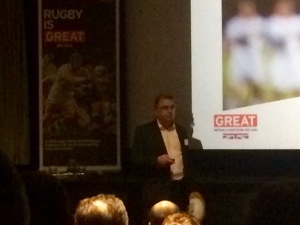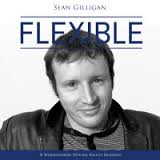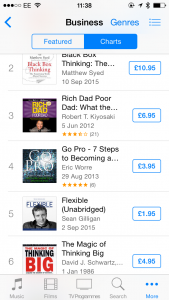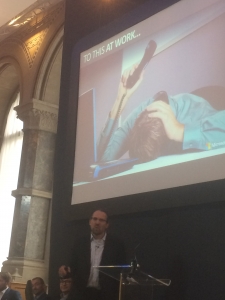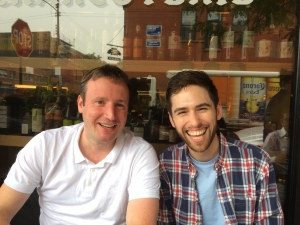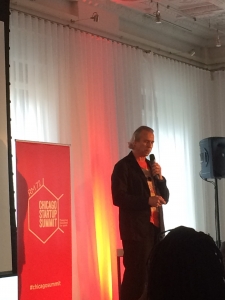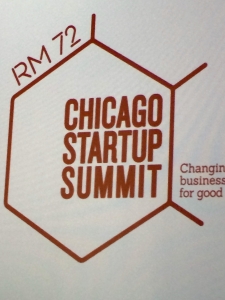On my last visit to Chicago I suggested to Emily Roden, Vice Consul at the Technology and Creative Industries at UKTI, to create a BritTech group to connect UK tech companies in Chicagoland. Our own Jon Perkins had previously met Lord Francis Maude (the UK Trade Minister) on a Chicago layover en-route to Silicon Valley and this spawned the idea.
The BritTech group is certainly helping UK companies make their mark stateside. Simon Bryan, Americas Managing Director at Lumi have a complementary product to our product range. Their product MeeToo is a mobile polling app, which could quite easily by linked to Moodle, our learning management system of choice. This partnership, although in its early stages, could prove to be mutually beneficial on both sides of the Atlantic.
 One evening we met Aaron Silver, the inventor of xAPI – the next generation of SCORM for e-learning content. The Experience API (xAPI), also known as the Tin Can API, is an e-learning software specification that allows learning content and learning systems to speak to each other in a manner that records and tracks all types of learning experiences, with learning experiences recorded in a Learning Record Store (LRS). It was interesting to understand what Aaron’s views were on the future of learning management systems and how new technology is transforming learning.
One evening we met Aaron Silver, the inventor of xAPI – the next generation of SCORM for e-learning content. The Experience API (xAPI), also known as the Tin Can API, is an e-learning software specification that allows learning content and learning systems to speak to each other in a manner that records and tracks all types of learning experiences, with learning experiences recorded in a Learning Record Store (LRS). It was interesting to understand what Aaron’s views were on the future of learning management systems and how new technology is transforming learning.
On another evening on the edge of the city, myself and the team visited the McDonald’s global headquarters. McDonald’s have been through a turbulent time of late, having had two CEOs in a short period of time. The brand is looking to re-invent its fortunes and the Chief Learning Officer Rob Lauber challenged the ATD (Association for Talent Development) meeting to come up with some ideas around the future of Hamburger University. Hamburger University is where all McDonald’s managers get trained, but questions were being asked around its viability and whether it was still relevant to the business. Of course, digital learning on mobile phones probably isn’t appropriate in McDonald’s when customers are waiting for burgers, but it was suggested that perhaps learning could be delivered through the tills and point of sales devices, as is the case in Domino’s in the UK.

McDonald’s need to enable collaboration across geographies. They currently have 15 learning management systems and this needs to be reviewed. Adaptable content which is learner-centric is needed. The learning has got to be easy to create and easy to execute. McDonald’s hires 800,000 new staff each year, which shows you the scale of the challenge. The learning system needs to link with business-based measurement systems to drive sales and customer satisfaction.
Meeting new people at McDonald’s, the BritTech group and being introduced to the founder of xAPI shows how new countries and new people can give you new insights to change your thinking and open up new possibilities.
